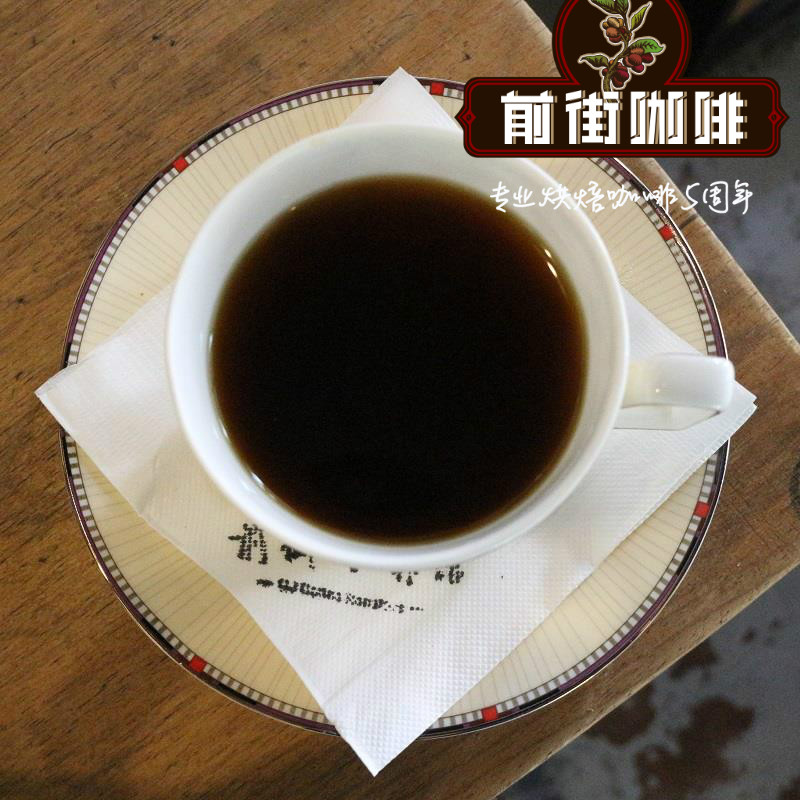Elegant Middle Eastern coffee-how to drink Arabic coffee? How should Arabic coffee be brewed?

Professional coffee knowledge exchange more coffee bean information please follow the coffee workshop (Wechat official account cafe_style)
The origin of coffee is said to have originated from shepherds in Ethiopia and later spread to Arab countries, but according to historical data, there was a record of trade between Yemen in the Arabian Peninsula and Ethiopia across the Red Sea in the eighth century AD. At that time, Yemen also had records of artificial cultivation of coffee trees, so it is widely believed that coffee was introduced into Arabia during this period.
In the 11th century, Arabs ate coffee as a kind of stomach medicine and refreshing medicine, and the way coffee was made gradually improved until it became a popular drink around the 15th century AD. When it was introduced into Europe, the Europeans commonly known as Arabian wine, and since then coffee has gradually spread all over the world.
Arabia is the first region in the world to produce and drink coffee, and its coffee culture has a long history, so the Arab region has a strong understanding of coffee quality, drinking mode, environment and atmosphere. Not only that, coffee is a discipline in the Arab region, just like the Japanese tea ceremony, they also have their own coffee studies.
Arabian coffee, like Turkish and Greek coffee, is full of coffee grounds without filtration, while Arabs drink coffee with dignified etiquette. There is a set of traditional coffee etiquette, even burning incense and sprinkling spices in the place where they taste it. Before tasting coffee, you should appreciate the coffee beans, from the aroma, color, flavor. Wait for careful study, and enjoy the exquisite and valuable coffee utensils, and finally began to brew strong coffee.
In Arab countries, if the host is invited to drink coffee at home by the local people, it means that the host is treated with the most sincere and highest respect, and the guest should be grateful and respond from the bottom of his heart, and the host needs to be courteous and courteous. When tasting the coffee, praise the mellow coffee. The most sincere way is to fill your mouth with coffee grounds, and do not drink water, which indicates that you are not satisfied with the host's coffee. It will also hurt the host's hospitality and self-esteem.
Arabian coffee is elegant, the etiquette of drinking coffee is mysterious, coffee with cloves, cardamom, cinnamon, its aroma full of room, carefully and slowly taste, that is the beginning of learning culture. Arab coffee culture is as mysterious as its country and the legend of 1001 nights, and as elegant, beautiful and legendary as Arab belly dance.
In Arab society, serving Arabica coffee to guests is regarded as a kind of generous etiquette and a very important way of hospitality. Traditionally, coffee is prepared in front of guests.
At first, the beans are selected, then placed in a shallow pan, baked slightly on the oven, and then mashed with a copper pestle in a copper mortar. Then put the coffee powder in a large copper coffee pot, add water and heat it on the stove. The brewed coffee is poured into a smaller coffee pot and then poured into small cups.
The most important and oldest guests will be served first, the cup will only be filled with 1/4 full, and then re-added after drinking.
According to custom, you should drink at least one cup of coffee, but no more than three cups. In society, regardless of gender or class, everyone knows how to enjoy coffee, especially at home.
Arab chiefs and chiefs are used to serving coffee at conference venues, and they, along with older Bedouin men and women, as well as coffee traders, are considered to be the main inheritors of coffee culture. These knowledge and traditions are passed on from generation to generation in the family through observation and practice. Young family members will also accompany the elderly to the market to learn how to choose the best coffee beans.
As the local people drink coffee is not filtered, this cup of coffee, which is as thick as broth, is poured into the cup, with sticky foam on the surface and dregs at the bottom of the cup. In the Middle East, being invited to someone's house for coffee represents the most sincere respect of the host, so in addition to praising the mellow coffee, guests should also remember not to drink water even if they are full of dregs, because it implies that the coffee is not good. Arabs drink coffee slowly, and they even have a set of exquisite coffee ways, just like the Chinese tea ceremony, when drinking coffee, they not only burn incense, but also sprinkle spices and smell incense, and have a dazzling array of coffee pot utensils. it is even more full of Arabian Nights style. A cup of Middle Eastern coffee with cloves, cardamom and cinnamon is full of fragrance when it is hot. No wonder Arabs praise it: musk attracts the heart and soul.
END
Important Notice :
前街咖啡 FrontStreet Coffee has moved to new addredd:
FrontStreet Coffee Address: 315,Donghua East Road,GuangZhou
Tel:020 38364473
- Prev

Is Baoshan Coffee good? the characteristics of Baoshan Coffee planting area description of Baoshan Coffee Flavor
Professional coffee knowledge exchange more coffee bean information please follow the coffee workshop (Wechat official account cafe_style)
- Next

Overproduction in Brazil, ICE Arabica Coffee fell to a new low on Wednesday
Professional coffee knowledge exchange more coffee bean information please follow the global oversupply of coffee workshops (Wechat official account cafe_style) weighed on the market. Intercontinental Exchange (ICE) Arabica coffee futures fell to a new low on Wednesday, while New York cocoa futures plunged nearly 3 per cent to a three-month low on the same day. The minister of agriculture of Brazil, a big coffee producer, told him that although the price of coffee has been low, Brazil
Related
- What documents do you need to go through to open a coffee shop? coffee shop coffee shop certificate processing process
- How to purchase Coffee beans in small Cafe how to choose a suitable supplier for domestic Coffee supply Company
- How to drink Starbucks Fragrance White Coffee? how to make Australian White Coffee? what Italian coffee beans are recommended?
- The Story of Flora Coffee: the name of Flora Coffee Bean and the implication of the Flowers on Florna Coffee
- How much does a cup of coffee cost? How much is the profit of a cup of coffee? What is the profit of the coffee shop in a year?
- Yunnan small Coffee, known as "fragrant Coffee", introduces the characteristics of Alpine Arabica Coffee producing areas in Yunnan, China
- 2023 latest Starbucks full menu price list how much is a cup of Starbucks coffee what is better to drink the most popular hot and cold drinks recommended
- Starbucks different kinds of Coffee Price list Starbucks menu 2023 Top Ten Best drinks in Starbucks
- Starbucks Spring praise Comprehensive matching Coffee Bean theme Story Packaging implication and taste description
- The cost of a cup of coffee latte American coffee cost price and selling price

